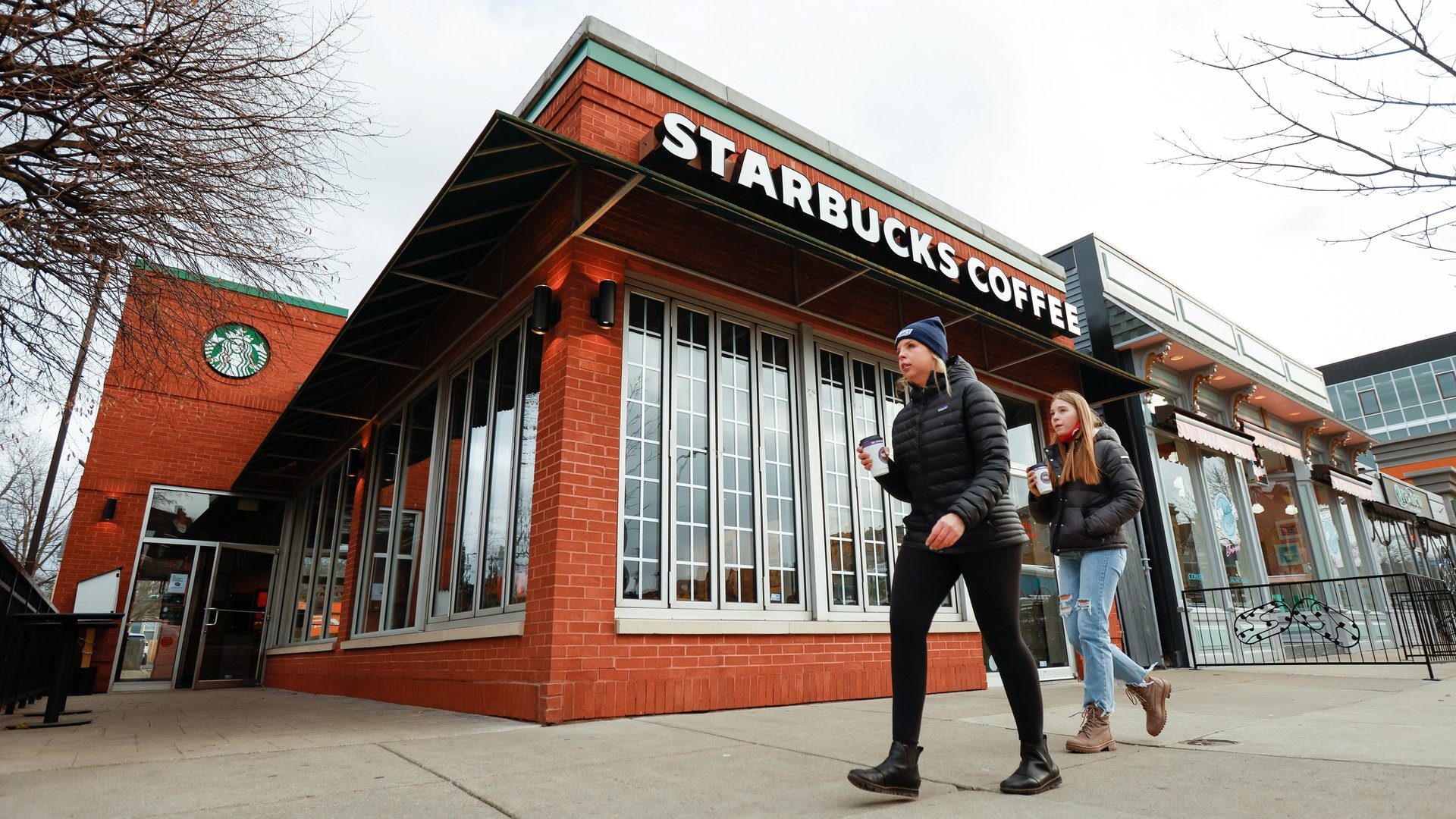Can Starbucks fight unionization without damaging its pro-worker image?
From Baltimore to Oakland, employees in at least 50 US Starbucks stores are pursuing union elections. The movement follows the recent worker victory in Buffalo, New York, where two stores voted to unionize. The recent organizing successes and the ongoing labor crunch in the industry suggest unionizing baristas may have an upper hand.


From Baltimore to Oakland, employees in at least 50 US Starbucks stores are pursuing union elections. The movement follows the recent worker victory in Buffalo, New York, where two stores voted to unionize. The recent organizing successes and the ongoing labor crunch in the industry suggest unionizing baristas may have an upper hand.
How will Starbucks respond?
Starbucks, which positions itself as a progressive company, is ahead of its industry when it comes to pay and perks. For instance, the coffee chain giant has offered health insurance to part-time workers since the late 1980s. Other employee benefits include six weeks paid leave for non-birth parents and tuition reimbursement. Recently, the coffee chain announced plans to raise its average wage up to $17 an hour by mid-2022. McDonald’s, on the other hand, has only committed to raising pay to an average of $15 an hour by 2024.
While Starbucks says it wants to listen and learn from employees, the company was not sympathetic to the cause in Buffalo, New York. Starbucks allegedly told workers not to unionize and flooded stores with executives to host “listening sessions” with workers.
The recent tensions suggest a tricky balance for progressive-seeming companies faced with organizing employees. It also raises the question of whether Starbucks will be able to protect the worker-friendly image it has cultivated over the years.
Will Starbucks’s pro-worker image be damaged?
On-going protests are not good for business, said Aaron Allen, the founder of Aaron Allen and Associations, a global restaurant consultancy. Starbucks is likely going to respond with more effective communications with its workers to convince them to reject unionization, and a public relations campaign that shows them happy in their jobs, he said.
The perception of union busting may not be received well from customers, he added. “They can’t look like they’re retaliating, or it’ll make them look worse,” he said.
The protests could also give Starbuck an opportunity to revamp its image. “We’ll see some softer side of Starbucks coming out so that it doesn’t look like a big corporate giant,” he said.
Starbucks will respect workers rights to unionize, said Sarah Albany, a spokesperson at Starbucks, in response to the new petitions. “Our general position hasn’t changed,” she said.
With low-wage workers being vocal about treatment and pay during the pandemic, could more stores unionize in the future? Allen said McDonald’s might be next, but that depends on how successful Starbucks workers are at organizing.